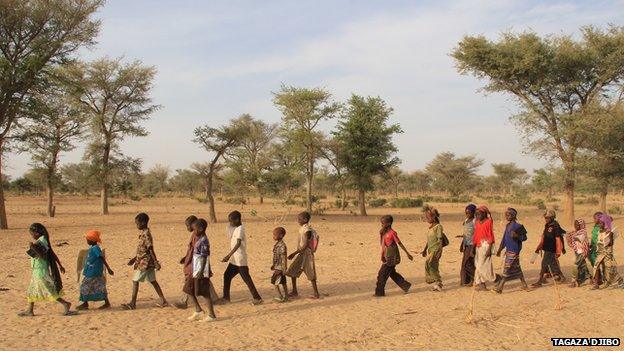Why is education never an emergency?
- Published

Why is education never an emergency? You know, a blue-lights-flashing, rapid-response, something-has-to-be-done emergency.
This week saw the UK launch of Unesco's annual monitoring report into the millennium goals for education, which included the pledge that every child in the world would have a primary school place by 2015.
With that date fast approaching, there's almost no chance of that promise being kept.
As the latest Education for All report shows, there are 57 million children who never start school and hundreds of millions more who get lessons of such low quality that they leave school barely able to read a sentence.
If this were a disease, blighting the lives of so many people, there would be calls for urgent action.
But the slow, insidious corrosion of illiteracy, ignorance and exclusion persists decade after decade.
The international community promised in 1990 that primary education for all would be reached by 2000. In 2000, it was shuffled forward to 2015.
Here we are, 24 years later, and there are promises being lined up for 2030.
Another 70 years
At the current rate of progress, it will be in the 2080s before all children get a chance to go to primary school. Girls in poor families in sub-Saharan Africa remain the most likely to miss out.
And even more recent problems, such as the conflict in Syria, have disrupted the education of hundreds of thousands of youngsters in a way that will play out for years and decades to come.
It would be wrong not to acknowledge what has been achieved since the launch of the millennium goals. The number of out-of-school children has fallen. And some countries have made great strides, with Ethiopia and Tanzania mentioned as success stories.
There are major international partnerships trying to do more, including Unesco and the Global Partnership for Education.
The UK can claim credit too as the biggest single direct donor to education, providing more funding than far bigger economies.
But the lack of a decent education, or any education at all, for so many families must remain one of the biggest man-made disasters on the planet.
It doesn't take much of a pessimist to recognise the political risks of having millions of unskilled, barely literate youths, with little chance of a job.
In such a mobile, interconnected world, such problems are unlikely to stay within their own borders.
Slow swamp
So why isn't there pressure on world leaders to keep their promises?
Is it because it's such a slow-moving problem, a slow swamp rather than a flash flood? Improvements will take years and there are no quick wins for corporate and celebrity donors.
Is it because there's no clear target, unlike eradicating a disease?
Or is it because of some awkward questions about who is responsible? Why is it so difficult to train more teachers, pay them properly and build more classrooms?
Is it uncomfortable to read that Nigeria has more out-of-school children than any other country - and then to read that the country has a fast-growing market for luxury private jets?
Do we wonder about big-spending China, with high-achieving schools being a recipient of education aid rather than a major donor?
And how have countries such as South Korea or Vietnam succeeded so rapidly in developing successful education systems from a low base when others seem to be stuck in reverse?
It's not simple.
But should it really take another three generations before everyone gets a primary school place?